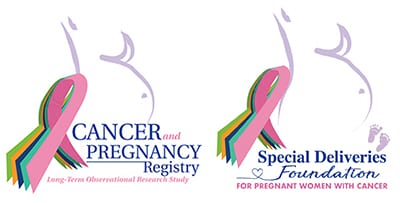Elyce H. Cardonick, MD; Marcy B. Gringlas, PhD; Krystal Hunter, MBA; Jay Greenspan, MD
OBJECTIVE: Cancer is diagnosed in approximately 1 per 1000 pregnant women. Lifesaving cancer therapy given to the mother during pregnancy appears in conflict with the interest of the developing fetus. Often, termination of pregnancy is suggested but has not been proven in any type of cancer to improve maternal prognosis, while very few studies have documented the long-term effects of in utero chemotherapy exposure on child outcome. To counsel patients about the risk of continuing a pregnancy while undergoing cancer treatment, we performed developmental testing to provide more detailed follow-up on children exposed in utero to chemotherapy.
STUDY DESIGN: Mother-infant pairs, enrolled in the Cancer and Pregnancy Registry, were offered developmental testing for children who were 18 months of age. Based on age, the Bayley Scales of Infant DevelopmenteThird Edition, the Wechsler Preschool and Primary Scale of Intelligence-Revised, the Wechsler Intelligence Scale for Children, Third Edition, or the Wechsler Individual Achievement Test was administered. All parents or primary caregivers completed the Child Behavior Checklist, a parent questionnaire to assess behavior and emotional issues. Results of children exposed to chemotherapy before delivery were compared with children whose mothers were also diagnosed with cancer during pregnancy but did not receive chemotherapy before delivery.
RESULTS: No significant differences were noted in cognitive skills, academic achievement, or behavioral competence between the chemotherapy-exposed group and the unexposed children. Of children, 95% scored within normal limits on cognitive assessments; 71% and 79% of children demonstrated at or above age equivalency in mathematics and reading scores, respectively; and 79% of children scored within normal limits on measures of behavior. Older children had significantly higher rates of internalizing behavior problems.
CONCLUSION: We could not demonstrate a significant difference in cognitive ability, school performance, or behavioral competence for children exposed to chemotherapy in utero compared with nonexposed controls. The majority of these children scored within normal limits on all developmental measures. Premature birth was more prevalent in the chemotherapy-exposed group yet did not predict developmental outcome. Older children in the sample demonstrated higher rates of internalizing behavior problems.
Cite this article as: Cardonick EH, Gringlas MB, Hunter K, et al. Development of children born to mothers with cancer during pregnancy: comparing in utero chemotherapy-exposed children with nonexposed controls. Am J Obstet Gynecol 2014;212:x.ex-x.ex.
